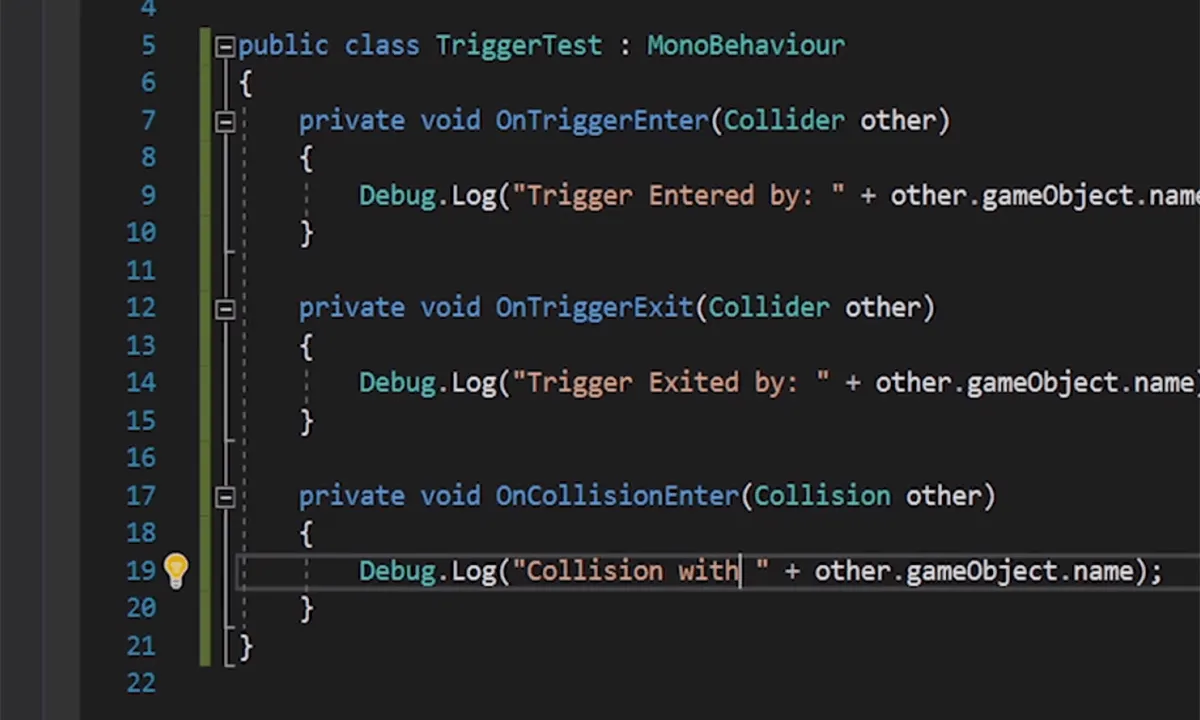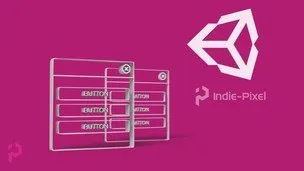
Programming for Level Design 
This Unity Expert Gameplay Programmer Certification Preparation Specialization provides an important update on programming for level design. It is designed to help individuals prepare for the certification exam. ▼
ADVERTISEMENT
Course Feature
![]() Cost:
Cost:
Free
![]() Provider:
Provider:
Coursera
![]() Certificate:
Certificate:
Paid Certification
![]() Language:
Language:
English
![]() Start Date:
Start Date:
24th Aug, 2020
Course Overview
❗The content presented here is sourced directly from Coursera platform. For comprehensive course details, including enrollment information, simply click on the 'Go to class' link on our website.
Updated in [March 06th, 2023]
Learners can learn from this course how to program for level design in Unity. This includes configuring GameObject physics, spawning Prefabs, designing level logic and behavior, scripting animation systems and events, and working with in-game cinematics. Learners will also gain an understanding of the full-game lifecycle, from early concept to launch, and how to create and work with Prefabs. Additionally, learners will gain an understanding of game asset and animation pipelines, as well as Unity Services. Finally, learners will develop advanced programming skills, particularly in the C# language.
[Applications]
Upon completion of this course, learners will have the skills and knowledge necessary to apply their programming skills to level design in Unity. Learners will be able to configure GameObject physics, spawn Prefabs, design level logic and behavior, script animation systems and events, and work with in-game cinematics. They will also be well-prepared to take the Unity Expert Gameplay Programmer Certification Exam.
[Career Paths]
Recommended Career Paths:
1. Gameplay Programmer: Gameplay Programmers are responsible for creating the core mechanics and systems of a game. They work closely with designers and artists to create the game’s rules, logic, and behavior. They also work with other programmers to ensure that the game runs smoothly and efficiently. Developing trends in this field include the use of AI and machine learning to create more dynamic and immersive gameplay experiences.
2. Level Designer: Level Designers are responsible for creating the levels and environments of a game. They work closely with artists and programmers to create the game’s layout, design, and flow. They also work with other designers to ensure that the game’s levels are balanced and engaging. Developing trends in this field include the use of procedural generation to create more dynamic and immersive levels.
3. Technical Artist: Technical Artists are responsible for creating the visual effects and animations of a game. They work closely with designers and programmers to create the game’s visuals and effects. They also work with other artists to ensure that the game’s visuals are optimized and performant. Developing trends in this field include the use of real-time rendering and physically-based rendering to create more realistic and immersive visuals.
4. Quality Assurance Tester: Quality Assurance Testers are responsible for testing the game’s features and functionality. They work closely with designers and programmers to ensure that the game is bug-free and meets the game’s design goals. They also work with other testers to ensure that the game is balanced and engaging. Developing trends in this field include the use of automated testing and analytics to create more efficient and effective testing processes.
[Education Paths]
Recommended Degree Paths:
1. Bachelor of Science in Computer Science: This degree path provides a comprehensive overview of computer science fundamentals, including programming, software engineering, and computer architecture. It also covers topics such as artificial intelligence, computer graphics, and computer networks. This degree path is ideal for those looking to develop their programming skills for level design.
2. Master of Science in Computer Science: This degree path provides a more in-depth look at computer science topics, such as algorithms, data structures, and operating systems. It also covers topics such as computer security, computer vision, and machine learning. This degree path is ideal for those looking to further develop their programming skills for level design.
3. Bachelor of Science in Game Design: This degree path provides a comprehensive overview of game design fundamentals, including game mechanics, level design, and game production. It also covers topics such as game programming, game art, and game audio. This degree path is ideal for those looking to develop their programming skills for level design.
4. Master of Science in Game Design: This degree path provides a more in-depth look at game design topics, such as game AI, game physics, and game narrative. It also covers topics such as game analytics, game monetization, and game user experience. This degree path is ideal for those looking to further develop their programming skills for level design.
Developing Trends:
1. Virtual Reality (VR): VR is becoming increasingly popular in the gaming industry, and developers are looking for ways to create immersive and engaging experiences for players. As such, there is a growing demand for developers with experience in programming for level design in VR.
2. Augmented Reality (AR): AR is becoming increasingly popular in the gaming industry, and developers are looking for ways to create immersive and engaging experiences for players. As such, there is a growing demand for developers with experience in programming for level design in AR.
3. Cloud Computing: Cloud computing is becoming increasingly popular in the gaming industry, and developers are looking for ways to create immersive and engaging experiences for players. As such, there is a growing demand for developers with experience in programming for level design in the cloud.
4. Artificial Intelligence (AI): AI is becoming increasingly popular in the gaming industry, and developers are looking for ways to create immersive and engaging experiences for players. As such, there is a growing demand for developers with experience in programming for level design with AI.
Course Provider

Provider Coursera's Stats at AZClass
Discussion and Reviews
0.0 (Based on 0 reviews)
Explore Similar Online Courses

Mobile App Design: From Sketches to Interactive Prototypes

Resolve anger and other strong emotions - Anger Management

Python for Informatics: Exploring Information

Social Network Analysis

Introduction to Systematic Review and Meta-Analysis

The Analytics Edge

DCO042 - Python For Informatics

Causal Diagrams: Draw Your Assumptions Before Your Conclusions

Whole genome sequencing of bacterial genomes - tools and applications

Learn Unity 3D and C# By Making a Full Game (2023)

Asset Creation and Management

Unity 3D - Create a Reusable UI System
 Related Categories
Related Categories
 Popular Providers
Popular Providers
Quiz
 Submitted Sucessfully
Submitted Sucessfully
1. What is the deadline for completing all graded assignments in order to earn a Specialization Certificate?
2. What is the minimum level of experience required to succeed in this course?
3. What type of game project will learners work on in this course?


Start your review of Programming for Level Design